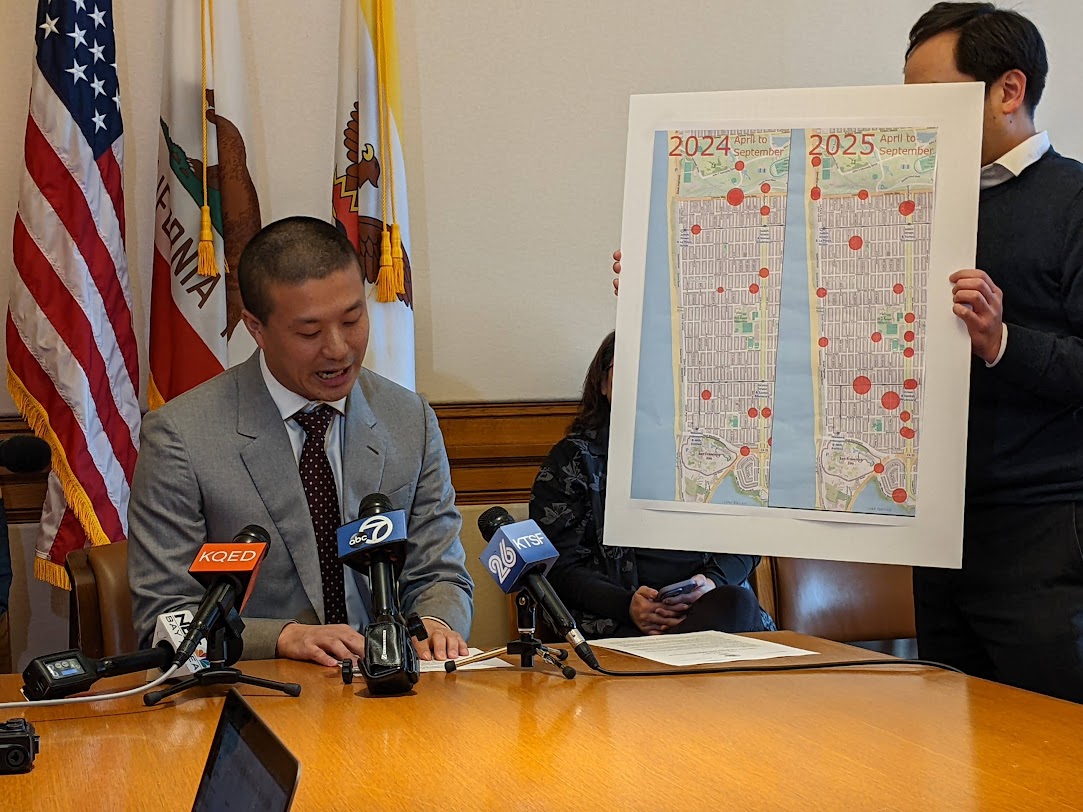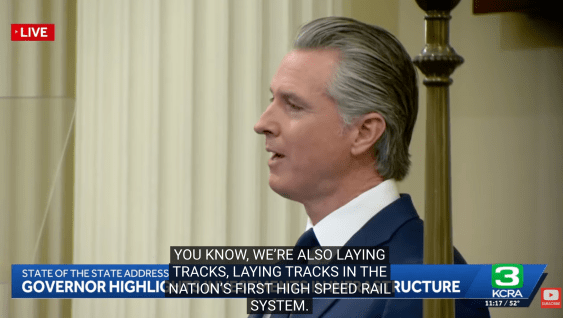 MTC's Executive Director Steve Heminger, foreground, listens to public testimony against MTC's plan to use federal stimulus funds for the Oakland Airport Connector last year. Photo: Matthew Roth
MTC's Executive Director Steve Heminger, foreground, listens to public testimony against MTC's plan to use federal stimulus funds for the Oakland Airport Connector last year. Photo: Matthew RothThe Federal Transit Administration has increased the likelihood the Metropolitan Transportation Commission (MTC), the Bay Area's regional transportation planning and funding body, will undergo a full civil rights investigation after it sent a letter last week [PDF] insisting the MTC turn over documents detailing its protocols for monitoring civil rights practices of the government agencies and private groups it gives federal money. Civil rights and transportation advocates are confident the MTC doesn't have those protocols in place and argue the FTA investigation will show a pattern of discriminatory funding of transportation projects in the Bay Area that dates back decades.
The federal inquiries started after Public Advocates, a civil rights law firm in San Francisco, filed a formal complaint with the FTA over BART's failure to conduct an equity analysis for its fare policy related to the construction of the controversial Oakland Airport Connector, an elevated tramway that would connect the Oakland Coliseum BART station to the Oakland Airport. As a result of the complaint, the FTA investigated BART and found it didn't conduct the necessary fare analysis as required by federal Title VI civil rights law and denied $70 million in federal stimulus funds for the project. The FTA subsequently initiated a full investigation of the transit agency across all its applicable practices.
Because the MTC has given substantial funding to BART over the years and specifically for the OAC, the FTA in February requested the MTC provide justification of its Title VI compliance [PDF].
MTC Executive Director Steve Heminger argued in a March letter [PDF] that transit agencies such as BART, as subrecipients of federal funding, are responsible for ensuring they have done their due diligence and that they are not using the money on projects that discriminate against people of color or low-income communities. Heminger essentially took a narrow view of several FTA rules, saying because MTC is "not a State DOT or State administering agency," it was not responsible for mandating Title VI compliance for that funding.
In FTA's most recent letter, Director of the Office of Civil Rights Cheryl Hershey pointed to several other broad requirements, including an FTA Master Agreement the MTC signs each year, that mandate the MTC monitor Title VI requirements, even of its subrecipients.
Wynn Hausser, a spokesperson for Public Advocates, said the FTA letter and the possibility of a full formal investigation into MTC should be a wake-up call for a commission they have sued for discrimination in its funding formulas. The 2007 Darensburg v. Metropolitan Transportation Commission lawsuit alleged MTC was subsidizing trips for wealthier white people at transit agencies like BART and Caltrain at a higher rate than they do at agencies like AC Transit, where 80 percent of riders are people of color.
"We've been after the MTC for years with our lawsuits," said Hausser. "We've had to turn to Washington and fortunately we
have a very brave FTA administrator who's willing to stand up against
tremendous political pressure and do the right thing."
 A chart created by Public Advocates that shows how much MTC subsidizes riders on various transit systems, as well as the racial make-up of that ridership.
A chart created by Public Advocates that shows how much MTC subsidizes riders on various transit systems, as well as the racial make-up of that ridership.Hausser believed the Darensburg lawsuit, while on its surface a victory for MTC after a judge ruled against Public Advocates, was the foundation for the current FTA action. In the lawsuit, said Hausser, the judge found prima facie discrimination in MTC policies, a decision he thought would play to their benefit upon appeal to the 9th Circuit Court of Appeals.
The MTC's spokesperson, John Goodwin, was particularly abrupt in his response. "We can confirm receipt of the letter," he said. "Our legal guys are scrutinizing it and we will work with the FTA to meet their deadlines."
To remedy their concerns, the FTA has demanded the MTC produce numerous documents, including:
- MTC's documented process for investigating Title VI complaints
- A description of actions MTC took to investigate the Title VI complaint filed by Public Advocates against BART and alleging BART was not in compliance with Title VI
- A description of the penalty MTC assesses against a subrecipient for being in breach of contract as a result of failure to comply with Title VI, as well as a description of how MTC determines a subrecipient is in breach of contract….
- Provide copies of the subrecipient compliance reports as required by FTA….
Goodwin insisted the MTC would work to meet the requirements from the FTA, but Hausser didn't believe they will be able to comply because they don't have the requested documents.
"We have filed Freedom of Information Act requests of these documents and
we have not received anything that looks like what they're being asked
for," said Hausser, who noted Public Advocates had received tens of thousands of pages of documents through the Darensburg case. "That's not to say they don't exist, but if they do, we should have
them."
Despite numerous requests for clarification, Goodwin would not comment further, except to say he was not aware of any other metropolitan planning organization (MPO) like the MTC in other areas of the country undergoing a similar review by the FTA.
Hausser said the FTA's letter should be alarming to other MPOs in California and beyond and that the FTA action signaled a change in Washington under the Obama administration to seriously consider the civil rights implications of transportation funding.
"If I were an MPO in another city, I would be sitting up and taking notice," he said.
Both Hausser and John Knox White, the OAC project manager for TransForm who has advocated BART and the MTC support a more affordable bus rapid transit airport connector, argued the FTA letter repudiated the MTC's contention that the matter was a mere technicality.
"It definitely shows a systemic issue with the way these major transportation projects are planned and implemented," said Knox White. He and other advocates have repeatedly argued the MTC and BART are merely paying lip service to civil rights, and are failing to do the necessary analysis to meet the FTA's criteria. Both Knox White and Hausser point to the recent actions by the federal government as vindication of their position.
Knox White, however, doubted the agencies would change overnight and pointed to what he characterized as BART's vilification of the advocates who objected to the OAC as proposed.
"Is the Bay Area going to step up and be the gold standard on civil rights they want to be, that they feel they are, or is this just going to be another time where we cut people out of the public participation process," said Knox White, who echoed Hausser's assertion that the FTA under former President George Bush didn't enforce civil rights laws with the same vigor the current FTA does.
"Is the Bay Area worse than everywhere else?" he asked. "I'm not sure I'm ready to make that determination, but there are significant problems. It's clear we're not setting the gold standard on this."





